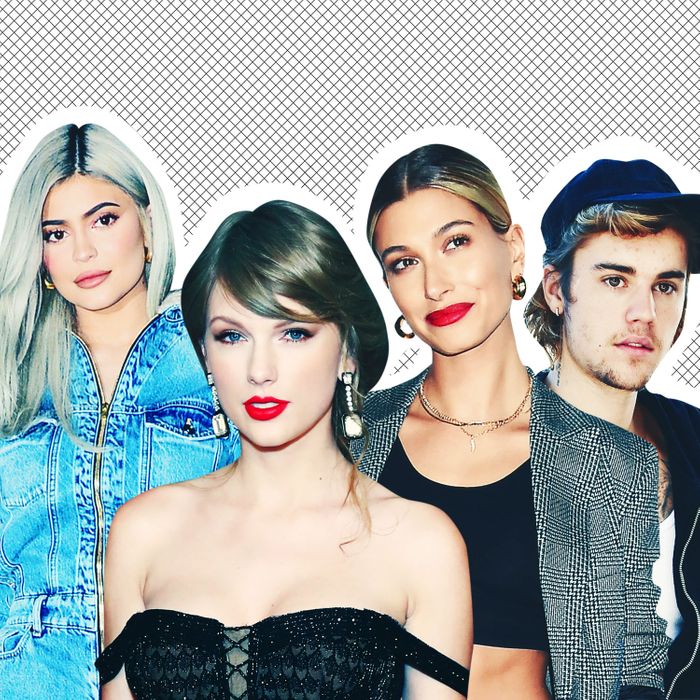
In the ever-evolving landscape of entertainment, certain music groups have transcended the boundaries of their art to become cultural icons. They have not only delivered unforgettable melodies but have also shaped the very fabric of our society. From electrifying performances that light up stadiums to chart-topping hits that echo through generations, these extraordinary bands have created a legacy that continues to influence artists and fans alike.
As we dive into the world of music, we will explore the best music group of all time, examining their impact not just on the charts but also on television, film, and countless gossip news stories that have kept them in the public eye. With each note they play and every lyric they sing, these groups have crafted narratives that resonate deeply, making them unforgettable figures in entertainment news history. Join us on this journey as we uncover what makes these musical legends stand out in a world filled with fleeting trends.
Throughout history, musical collaborations have transformed the landscape of the entertainment industry, bringing together diverse talents to create unforgettable sounds. The early days of music saw artists primarily working in isolation, but as the industry developed, the synergy between musicians began to flourish. From doo-wop groups harmonizing on street corners to bands collaborating in the studio, the idea of joining forces to produce music gained momentum. This evolution paved the way for groundbreaking partnerships that reshaped genres and influenced cultural movements.
The rise of technology and new media in the late 20th century further revolutionized musical collaborations. The advent of digital recording allowed musicians to connect across vast distances, enabling them to work together without being in the same room. This shift opened doors for unique collaborations between artists from different backgrounds and genres. Iconic examples include the fusion of rock and hip-hop, as seen in collaborations like Aerosmith and Run-D.M.C. Together, these artists created a fresh sound that resonated with a broader audience, bridging gaps and fostering innovative musical expressions.
As we moved into the 21st century, the trend of collaboration intensified, with artists increasingly turning to each other to diversify their sound and expand their fanbase. High-profile partnerships became a staple in music, as seen in projects like Jay-Z and Linkin Park's Collision Course and Taylor Swift's frequent team-ups with various artists. This new era of collaboration has not only shaped the musical landscape but also intertwined with other entertainment forms, as musicians appear in movies and TV shows, further feeding the cycle of influence and inspiration across the creative industries.
Throughout the years, there have been unforgettable moments that have shaped the landscape of music and entertainment. One such moment occurred during the 1969 Woodstock festival, where the iconic performance of Jimi Hendrix not only showcased his unparalleled guitar skills but also became a symbol of the counterculture movement. His rendition of "The Star-Spangled Banner" forever changed the way music intersected with social movements, highlighting the power of artists to influence public opinion and inspire change.
Another significant moment was the release of The Beatles' album "Sgt. Pepper's Lonely Hearts Club Band" in 1967. This groundbreaking album marked a pivotal point in music history, blending various genres and pushing the boundaries of what popular music could achieve. The Beatles' innovative approach to music production, along with their cultural impact, transformed the music industry and made them one of the most celebrated groups of all time. Their influence can still be felt across generations, making their landmark album a timeless piece of art.
The emergence of MTV in the early 1980s revolutionized the way music was consumed and presented. The launch of music videos as a primary promotional tool allowed artists to connect with audiences on a visual level. Madonna's performance of "Like a Virgin" at the first MTV Video Music Awards in 1984 exemplified the influence of television on music. Her bold style and memorable moments set a new standard for artists, making music videos an essential aspect of an artist's success and solidifying her status as a pop icon.
Music groups have profoundly influenced pop culture, shaping not only the sound of music but also fashion, lifestyle, and societal norms. In the 1960s, bands like The Beatles and The Rolling Stones transcended music, becoming cultural icons that reflected the changing attitudes of the time. Their styles and messages resonated with youth movements, leading to a transformation in how music was perceived—no longer just entertainment, but a medium for social commentary and personal expression.
https://www.aceshowbiz.com/celebrity/sydney_sweeney/As music evolved through the decades, so did the impact of groups on television and film. Acts such as ABBA and The Jackson 5 made significant contributions to entertainment, appearing in movies and TV shows that captured the public's imagination. Their ability to blend music with storytelling expanded their reach, making them household names and influencing subsequent generations of artists and performers. The integration of music groups into popular productions remains a staple of entertainment, fostering a deeper connection with audiences.
Today, the legacy of influential music groups continues to thrive in modern pop culture. From the iconic harmonies of Fleetwood Mac to the rap dynamics of Wu-Tang Clan, these groups have set the stage for contemporary collaborations and genre-blending artists. Gossip news and entertainment media frequently highlight reunions and tributes, showcasing the lasting allure and impact of these groups. As they inspire new talents, their contributions to music and culture demonstrate their timeless relevance and importance in shaping the entertainment landscape.